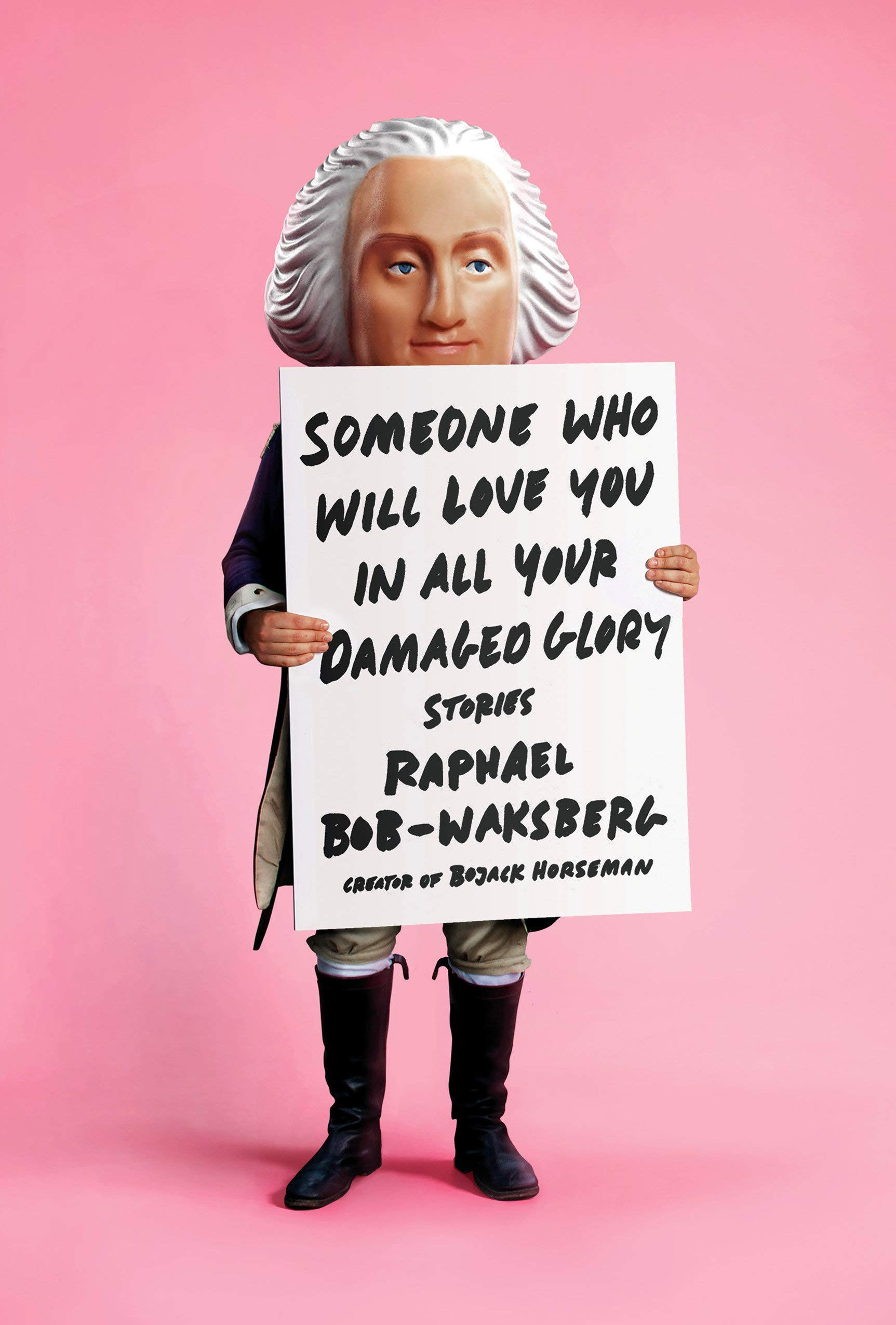
January 22, 2021, by UoN School of English
Review: Someone Who Will Love You In All Your Damaged Glory by Raphael Bob-Waksberg
Few things pack an emotional punch the way Bojack Horseman, the animated TV show about a depressed talking horse, does. When it ended at the beginning of the year, I was looking for something to fill the void; luckily, creator Raphael Bob-Waksberg had written a new short story collection published last year. Someone Who Will Love You In All Your Damaged Glory is a gift to those who want to see his unique style transferred to prose for the first time.
In the opening two-page story, ‘Salted Circus Cashews, Swear to God,’ a first date takes a turn when the man offers the woman a can of cashews which promises that “there certainly isn’t a fake snake wrapped around a spring that will jump out and startle you when you remove the top, if that’s what you were thinking.” The typography starts huge, and the more you read, the more the words shrink into a block of small print, as the can of cashews desperately tries to convince the woman of its innocence. The metaphor being, obviously, that opening a can of cashews is like the woman starting a new relationship, sincere in the hope that there are actually cashews waiting for her, and not snakes. The upsides are plentiful, but she has been tricked before. Will she bother again?
The story is indicative of the mood of much of the book, and Bob-Waksberg’s work as a whole. His stories are stylistically postmodern – irreverent, ironic, self-referential – but yearn far too much for meaning and sincerity to be classified as such. Instead, they exist on a pendulum swing between cynicism and naivety; irony and sincerity; optimism and doubt. It’s an example of what the cool kids are calling metamodernism: a rejection of the nihilism of postmodernism, it aims to restore meaning to a world desperately in need of some.
The stories in Damaged Glory are all about love; or at least, a yearning for connection. Bob-Waksberg experiments with form: stories are told within a poem, some board game rules, and a bullet point list of lies. Underlying it all is an unshakeable melancholy, offset by compellingly creative comedy. In ‘A Most Blessed and Auspicious Occasion’, an engaged couple are forced to decide which absurd and arbitrary wedding traditions to go along with – “‘But Peter, you have to have candles. Otherwise, how will the half-blind love-demon transcribe your names in the Book of Eternal Devotion?’” Some lines seem plucked wholesale from Bojack: “‘I never thought I could be this happy,’ she imagined one day saying to someone.”
Bob-Waksberg wears his heart too much on his sleeve for this collection to be classified as literary fiction: only Ali Smith’s seasonal quartet comes close to matching his wit and earnestness. But he injects his work with an emotional vulnerability and willingness to be sincere that most of those novels lack. Authors like Raphael Bob-Waksberg give irony-saturated audiences permission to believe in things again.
Angus Forshaw is an English student at the University of Nottingham.
Image credit: Penguin Random House
No comments yet, fill out a comment to be the first

Leave a Reply